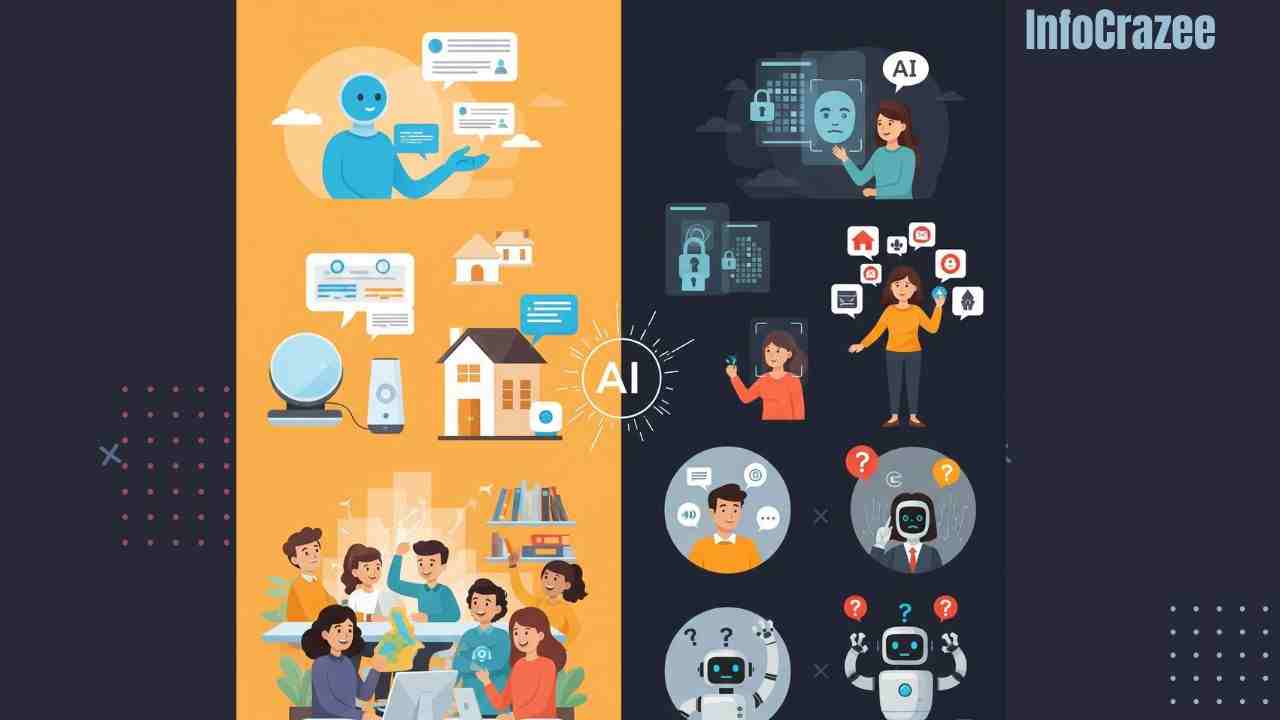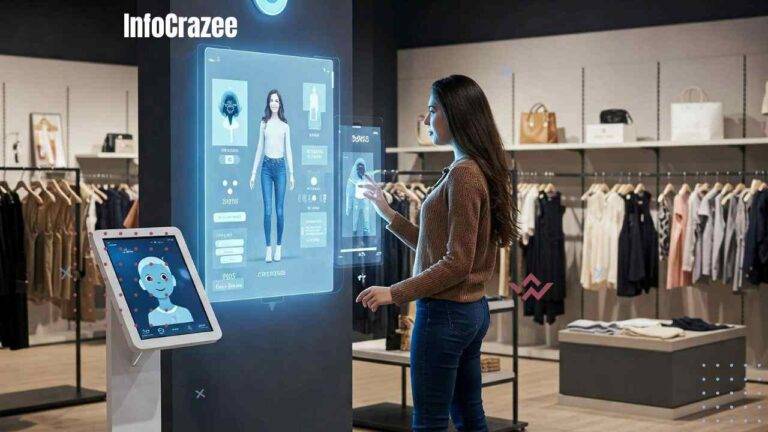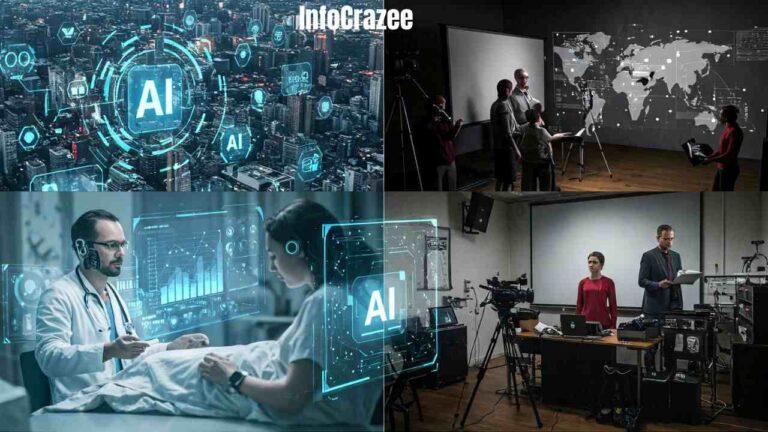The Pros and Cons of AI – How It’s Helping (and Hurting) Our Daily Lives
Artificial Intelligence, or AI, is everywhere these days. From the way your phone understands your voice commands to how Netflix suggests your next binge-watch, AI quietly powers a lot of what we do every day. But, just like any powerful tool, AI has its good sides and its tricky bits.
Let’s break down the pros and cons of AI so you can see how it’s shaping our lives — sometimes in awesome ways, and sometimes in ways that make us stop and think.
What’s So Great About AI? The Pros That Make Life Easier
AI is designed to make things smoother, faster, and more efficient. Here are some real ways it’s helping us right now:
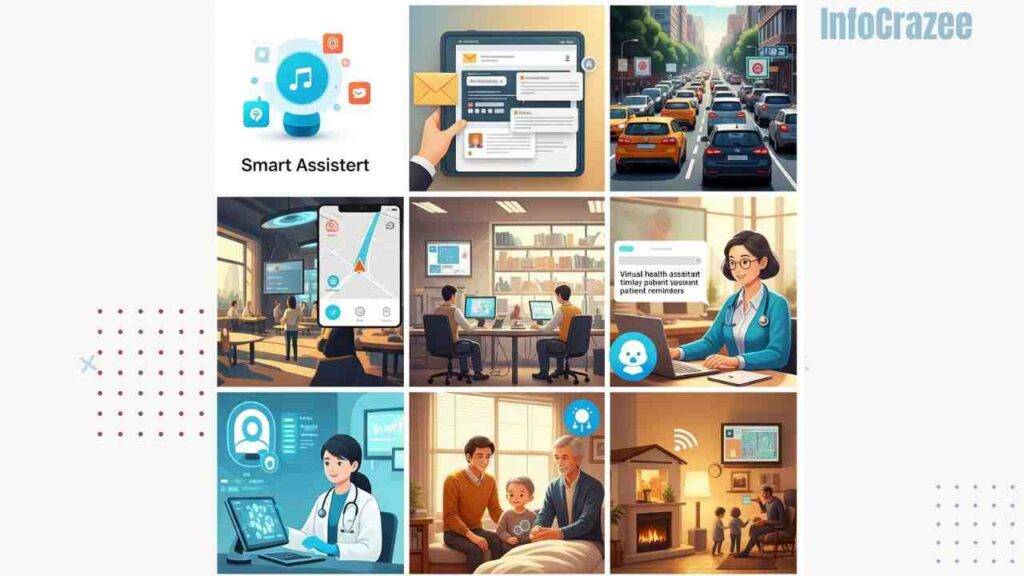
1. Saving Time and Effort
- Smart assistants like Siri and Alexa help us set reminders, play music, or check the weather without lifting a finger.
- Email filters automatically sort spam and important messages, so you spend less time cleaning your inbox.
- Navigation apps like Google Maps use AI to find the fastest routes, saving you from traffic jams and headaches.
2. Boosting Productivity at Work
- AI tools help businesses automate repetitive tasks, so employees can focus on more creative or complex work.
- Customer support chatbots answer questions instantly, even outside of office hours.
- AI-powered analytics help companies understand customer behavior and make smarter decisions.
3. Improving Healthcare
- AI helps doctors spot diseases earlier through image analysis and pattern detection.
- Virtual health assistants remind patients to take medication or schedule appointments.
- AI is speeding up drug discovery, helping create treatments faster.
4. Enhancing Daily Convenience
- AI personalizes what you see online — from news stories to shopping suggestions tailored just for you.
- Smart home devices learn your habits, adjusting lights or thermostats automatically to keep you comfortable and save energy.
Personal Story:
My friend’s grandmother uses an AI-powered health monitor that alerts family members if she falls or misses a medicine dose. It gives everyone peace of mind, knowing she’s safer at home.
But Wait — What Are the Downsides? The Cons of AI
While AI brings a lot of benefits, it’s not all sunshine and rainbows. Here are some challenges and concerns to keep in mind:
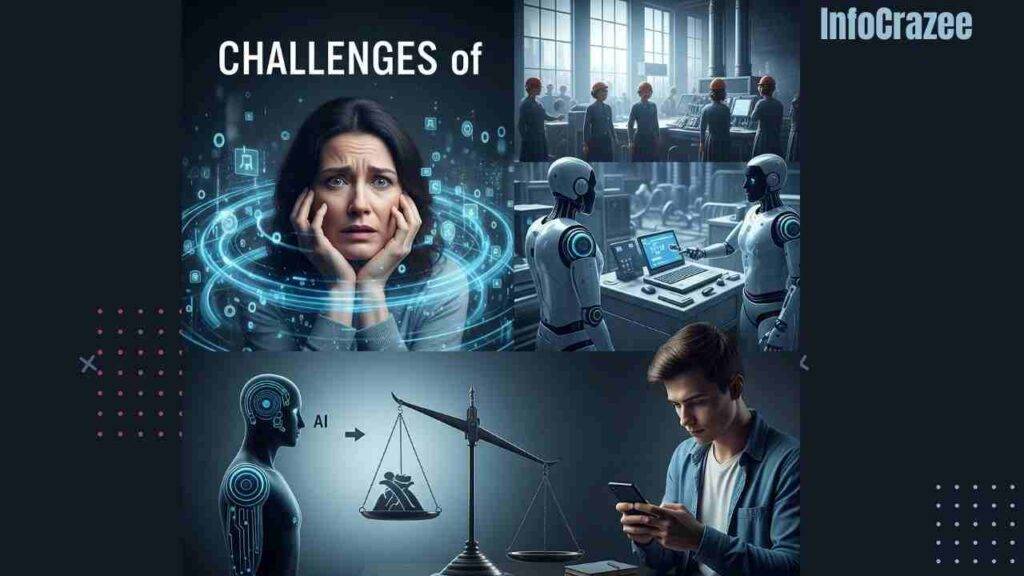
1. Privacy and Data Worries
- AI systems need tons of data to work well, which means lots of personal info is collected.
- Sometimes, this data can be misused or hacked, putting your privacy at risk.
- Ever feel like ads are creepily spot-on? That’s AI tracking your habits closely.
2. Job Concerns and Automation
- AI can replace repetitive or manual jobs, which worries many workers about losing employment.
- Not every displaced worker finds easy paths to new jobs, especially if retraining is needed.
- Some industries face big shifts, and the transition period can be tough.
3. Bias and Fairness Issues
- AI learns from data — and if that data is biased, the AI can make unfair decisions.
- This has caused problems in areas like hiring, lending, or law enforcement, where AI might unintentionally discriminate.
- Fixing bias is an ongoing challenge for developers and companies.
4. Overdependence and Reduced Skills
- Relying too much on AI might make us less sharp in certain skills — like remembering phone numbers or navigating without GPS.
- Sometimes, people blindly trust AI decisions without questioning or understanding them.
How Can We Make AI Work for Us — Not Against Us?
AI isn’t going away, so the key is to use it wisely and carefully. Here’s how you can get the most out of AI, while protecting yourself:
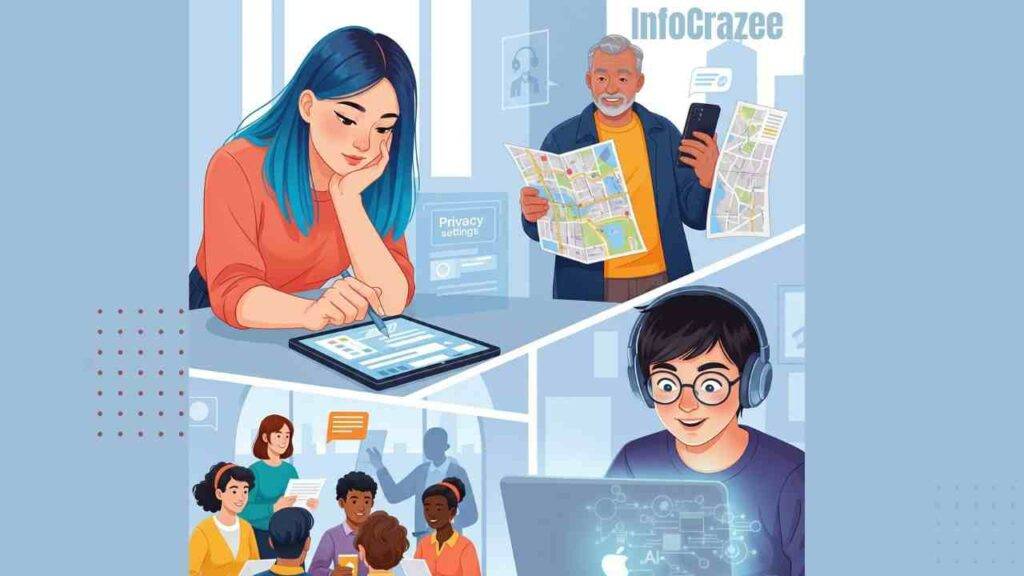
Stay Informed
- Learn how AI tools you use work and what data they collect.
- Read privacy policies (yes, they’re boring, but important!).
- Adjust privacy settings on apps and devices.
Keep Your Skills Sharp
- Use AI as a helper, not a crutch. For example, try to remember directions before checking GPS.
- Practice critical thinking — don’t accept everything AI suggests blindly.
Support Ethical AI
- Choose companies that are transparent about how they use AI and data.
- Encourage fair and unbiased AI by supporting open discussions and regulations.
Be Open to Learning New Skills
- If your job is affected by automation, look for training in tech-related or creative fields.
- Many online courses now help people adapt to a changing work landscape.
Quick Recap: The Good and the Not-So-Good of AI
| Pros | Cons |
|---|---|
| Saves time and boosts productivity | Privacy risks and data misuse |
| Helps healthcare and diagnosis | Job loss worries due to automation |
| Makes daily life more convenient | AI bias can cause unfair treatment |
| Personalizes services to fit your needs | Overdependence can dull our skills |
FAQs
1. Is AI dangerous for my personal privacy?
AI systems collect data to work well, so your privacy can be at risk if companies don’t handle data carefully. Always check app permissions and privacy settings to stay safe.
2. Will AI take over most jobs?
AI will change many jobs by automating routine tasks, but it’s also creating new roles. Skills like creativity, problem-solving, and emotional intelligence will stay in demand.
3. Can AI make unfair decisions?
Yes, if AI learns from biased data, it can make unfair or incorrect choices. This is why ethical AI development and oversight are so important.
Final Thoughts
AI is like a super-smart helper — it can do a lot of good but also comes with some risks. By understanding both sides, we can use AI to improve our lives without losing control or our privacy.
